Roleplay Actions
In addition to the standard actions available to heroes on their turn, there is a special action called "Roleplay Action" that allows them to engage in more immersive and interactive experiences within the game world. The Roleplay Action enables heroes to interact with the environment, non-player characters (NPCs), and objects using both Physical and Mental Checks. When a hero chooses to take a Roleplay Action, they can perform a variety of actions that involve roleplaying and problem-solving. This can include engaging in conversations with NPCs to gather information, negotiating with characters, deciphering ancient texts or codes, investigating clues, or solving puzzles within the game world. Roleplay actions in HeroQuest extend beyond mere interaction and encompass specialized forms of movement like sneaking and acrobatics. These roleplay actions add excitement and depth to the game, allowing characters to showcase their unique skills. Sneaking past guards or performing daring acrobatic feats become engaging gameplay moments. To determine the outcome of a Roleplay Action, the player will make either a Physical Check or a Mental Check, depending on the nature of the action. The number of dice rolled is based on the hero's corresponding Body or Mind score. The player then compares the results, counting the number of successes (skulls) and failures (white and black shields) obtained. The outcome of the Roleplay Action depends on the number of successes and failures rolled. Successes indicate progress, gaining information, or successfully solving a puzzle, while failures may result in setbacks, missed opportunities, or unexpected consequences. The Roleplay Action encourages players to immerse themselves in the game world, interact with NPCs, and actively participate in the unfolding story. It adds depth to the gameplay experience by integrating elements of roleplaying and problem-solving, allowing heroes to use their skills and abilities to overcome challenges beyond combat encounters. Note that the availability of Roleplay Actions may depend on the specific scenario, the game master's discretion, and the narrative of the game being played. It provides an opportunity for players to engage in creative problem-solving and enjoy a more immersive and dynamic gameplay experience.Physical Checks:
As the mighty Barbarian, your muscles ripple with power as you approach the ancient stone door. Carved with intricate symbols and weathered by the passage of time, it stands as a mysterious barrier to the unknown. With a glimmer of curiosity in your eyes, you step forward, feeling the weight of your 8 Body Points behind you.
Your instincts tell you that this door holds secrets within its sturdy frame—secrets that could aid your party in their perilous quest. With a deep breath, you gather your strength, preparing to unleash your raw might upon the unyielding obstacle.
With a resounding thud, you bring your muscular arms crashing against the stone door. The impact reverberates through the chamber, sending echoes of your determination into the depths. The game master, a masterful weaver of tales, asks you to make a Physical Check to determine the outcome of your feat of strength.
Your Body score of 8 fills you with confidence as you grip the dice, ready to let fate decide the door's response. Each roll represents a surge of your energy, the force of your will as you push against the resistance, striving to break through the unknown.
As the dice settle, you count the number of skulls, symbols of your triumph, and the shields, symbols of your struggles. If the skulls outnumber the shields, the stone door groans in surrender, yielding to your indomitable strength. The secrets it guards are unveiled, rewarding your bravery with treasures untold.
However, should the shields prevail, it is a testament to the door's formidable defense. Despite your best efforts, it holds firm against your onslaught. Perhaps there is a hidden mechanism yet to be discovered, a puzzle to be solved before it will yield its secrets.
In this immersive Roleplay Action, the game unfolds beyond mere combat, allowing you to embody your character, showcase their unique abilities, and interact with the world around you. It adds depth and richness to your adventures, making each decision and action a pivotal part of your hero's tale.
In HeroQuest, Physical Checks are utilized for any physical challenge that arises within the game. These checks solely depend on the character's Body score, which reflects their resilience and physical capabilities.
To perform a Physical Check, the player rolls a number of white combat dice equivalent to their current Body score. Each die represents an attempt to succeed in the physical task at hand. The player analyzes the results to determine the outcome.
During the resolution of a Physical Check, the player counts the number of dice that display a skull symbol as a successful outcome. These skulls indicate successful attempts in the physical challenge. If the number of successes surpasses the total number of failed dice rolls (represented by results of white or black shields), the Physical Check is deemed successful. Conversely, if the failures outweigh the successes, it is considered a failure.
However, as the character sustains damage and loses Body Points, the difficulty of performing physical tasks increases. This means that characters with injuries will have fewer dice to roll, making success more elusive.
This mechanic highlights the significance of injuries on physical abilities, creating a dynamic in which wounded characters face heightened difficulty in accomplishing physical tasks. It introduces strategic decision-making and risk assessment as players must carefully consider the consequences of engaging in physically demanding situations when their Body Points are diminished.
Mental Checks:
As the enigmatic Wizard, your mind crackles with arcane knowledge and the lingering effects of battle. You stand before an ancient tome, its pages filled with cryptic symbols and esoteric incantations. The knowledge it holds could unravel the mysteries of your quest, but the toll of past encounters has left you with only 4 Mind Points to harness.
With a furrowed brow and a surge of determination, you focus your dwindling mental energy on deciphering the secrets within the tome. Your fingers trace the intricate patterns, seeking comprehension amidst the chaos of symbols and text. The game master, a masterful weaver of tales, guides you through this moment of intense mental concentration, asking you to make a Mental Check to unlock the hidden knowledge.
The weight of your 6 starting Mind Points echoes in your memories, a reminder of your intellectual prowess in times of greater strength. However, the wounds inflicted by enemy spells have taken their toll, reducing your mental fortitude to its current state.
As you grasp the dice, symbols of fate in your hands, you delve deep into your inner reserves. Each roll represents a mental exertion, a flicker of insight or a frustrating moment of confusion. With each result, you calculate the success and failure that rests within the realm of your mind.
Amidst the clatter of dice, you count the number of skulls, a testament to your keen understanding and mastery of the tome's contents. Each skull signifies a breakthrough, a revelation in your quest for knowledge. However, you also take note of the shields, shields that represent the mental barriers and distractions that hinder your concentration.
If the skulls outnumber the shields, your mind pierces through the enigmatic words and symbols, unlocking the secrets within the ancient tome. The knowledge flows into your consciousness, empowering you with insights and revelations that can aid your party's endeavors.
Yet, if the shields prevail, your mental wounds weigh heavily upon you. The strains of battle, the weariness of your mind, prevent you from grasping the true essence of the tome's wisdom. Your frustration grows, knowing that there are insights just beyond your reach, waiting for a time when your mental acuity is restored.
In this immersive Roleplay Action, you step into the intricate workings of the wizard's mind, navigating the delicate balance between knowledge and vulnerability. The Mental Check adds depth and complexity to your character's journey, highlighting the impact of mental resilience and the challenges faced when wounded.
In HeroQuest, Mental Checks are used to tackle tasks that require mental acuity and intelligence. These checks rely solely on the character's Mind score. A higher Mind score indicates enhanced mental prowess and cognitive capabilities.
To perform a Mental Check, the player rolls a number of white combat dice equal to their current Mind score. Each die represents an attempt to succeed in the mental task at hand. The player assesses the results to determine the outcome.
When resolving a Mental Check, the player counts the number of dice showing a skull symbol as successful outcomes. These skulls represent successful attempts in the mental challenge. If the number of successes exceeds the total number of failed dice rolls (represented by results of white or black shields), the Mental Check is considered successful. Conversely, if the failures outweigh the successes, the check is deemed a failure.
However, as the character faces mental strain, such as through the effects of spells or mental damage, the difficulty of mental tasks increases. Any reduction in the character's Mind score decreases the number of dice rolled in the Mental Check. This means that characters experiencing mental challenges will have fewer dice to rely on, making success more challenging.
This mechanic emphasizes the impact of mental strain on cognitive abilities, creating a dynamic in which characters facing mental obstacles encounter increased difficulty in accomplishing mental tasks. It adds depth to decision-making and risk management as players must carefully evaluate the consequences of engaging in mentally demanding situations when their Mind score is diminished.
Critical Failures on Checks:
In the midst of your perilous quest, the Elf finds herself facing a daunting challenge that demands her utmost focus and skill. Deep within the ancient ruins, you come across an intricate magical barrier, pulsating with energy. It stands between you and the valuable artifact you seek, a key to unlocking the secrets of a forgotten civilization.
Knowing the gravity of the situation, you take a moment to assess the situation and gather your resolve. This is not an ordinary Mental Check; it is a critical moment that could determine the success or failure of your entire mission. With only 4 current Mind Points, your wounded state adds an additional layer of difficulty, testing your mental fortitude.
You reach out with your elven senses, attempting to decipher the complex patterns of magic woven into the barrier. The air crackles with arcane energy as you concentrate, channeling your remaining mental strength into unraveling the enigma before you. The consequences of failure loom ominously, amplifying the pressure upon your shoulders.
As you focus your mind, seeking to manipulate the magical forces, a critical failure is always a possibility. Your concentration wavers, perhaps due to the strain of your injuries or the oppressive weight of the situation. Your attempt to breach the barrier falls short, triggering a series of dangerous events.
In this critical failure, the barrier responds to your misstep, unleashing its hidden defenses. The pulsating energy intensifies, crackling with volatile power. Arcane blasts erupt from the barrier, lashing out at you with malevolent force. The situation grows dire, threatening not only your mission but also your very survival.
As Zargon, the cunning adversary, witnesses your failure, a sense of satisfaction crosses their face. They seize the opportunity to capitalize on your vulnerability. Zargon rolls a number of combat dice equal to the total count of black shields rolled during your failed Mental Check. Each die represents a retaliatory action, an unleashed spell, or a shift in the environment that works against you.
Now it is time for your defensive skills to shine. As the Elf, you must summon your agility and wits to protect yourself from the impending onslaught. Drawing upon your instincts and honed reflexes, you roll a designated number of combat dice for defense. These defensive dice embody your character's capacity to mitigate the consequences of failure and safeguard themselves in the face of adversity.
During the defense roll, the outcome hinges on the interplay between your white shields and the skulls rolled by Zargon. Each white shield symbolizes a successful defense, countering the threats or dampening their impact. By skillfully evading, deflecting, or resisting the onslaught, you strive to minimize the harm caused by your critical failure.
This rule serves to heighten the tension and emphasize the risks associated with critical Mental Checks. It adds a strategic element to the game, forcing players to weigh the potential dangers before embarking on high-stakes endeavors. By introducing Zargon's retaliatory actions and the hero's defensive roll, the rule deepens the immersion and creates thrilling exchanges in moments of critical failure.
In more perilous situations, HeroQuest introduces a rule to further intensify the consequences of failed checks. When a character attempts a particularly dangerous Physical or Mental Check and fails, the number of black shields rolled is tallied. This represents the severity of the failure and the immediate danger that follows.
Zargon, the game's adversary, then rolls a number of combat dice equal to the total count of black shields. These dice represent the retaliatory actions or adverse circumstances triggered by the failed check. The hero must now roll their own dice to defend against the impending threat.
During the defense roll, the hero's defensive capabilities come into play. Based on their equipment and abilities, the hero rolls a designated number of combat dice. These defensive dice represent the hero's efforts to mitigate or overcome the consequences of their failure.
The outcome of the defense roll is determined by comparing the number of white shields rolled to the number of skulls rolled by Zargon. Each white shield successfully cancels out one skull, reducing the impact of Zargon's attack or the severity of the adverse circumstances.
This rule adds a layer of tension and risk to critical checks, emphasizing the potential repercussions of failure. It forces players to carefully consider the stakes before attempting dangerous tasks and provides an opportunity for both Zargon and the hero to engage in a tactical exchange during critical moments.
Contested Checks:
The shadows dance and flicker as the rogue cautiously approaches the dimly lit chamber, where a solitary goblin stands guard. With bated breath, the rogue prepares to test their stealth against the goblin's keen perception in a daring contest of wits.
The rogue, relying on their nimble movements and sharp instincts, makes a silent Physical check, their steps measured and light. They roll the dice, representing their deftness and agility in the art of stealth. Each roll symbolizes their attempt to outmaneuver the goblin and remain unnoticed.
Meanwhile, the goblin, alert and watchful, relies on their cunning and sharp senses to detect any intruders. They make a Mental check, using their keen perception and innate ability to sniff out danger. The dice are rolled, signifying their efforts to catch the slightest hint of the rogue's presence.
The outcome of this contest lies in the comparison of successes between the rogue and the goblin. If the rogue manages to accumulate more successes, their movements are like whispers on the wind, and they successfully slink past the goblin's watchful gaze, leaving the creature none the wiser.
However, if the goblin proves to be equally or more perceptive, their eyes lock onto the rogue's faintest movements, and their suspicions are aroused. The rogue's attempt to sneak past is thwarted, leading to potential confrontation or the triggering of alarms that may reverberate through the dungeon's corridors.
In this tense moment of shadows and secrets, the Contested Check rule highlights the delicate balance between the rogue's skills and the goblin's perception. It immerses players in a thrilling contest, where each roll of the dice holds the outcome of the rogue's fate.
In certain challenges or encounters, a Contested Check is used to determine the outcome of a contest between heroes and opponents. The hero character makes a relevant stat-based check, rolling dice equal to their corresponding stat (e.g., Body for physical challenges, Mind for mental challenges). The opponent makes an opposing check, rolling dice based on their corresponding stat. The winner is determined by comparing the number of successes on the hero's check to the opponent's check. The players may suggest which stats are compared between the opposing characters, but Zargon has the final say.
If the hero has more successes, they succeed in their action, gaining an advantage or achieving their goal. If the opponent has an equal or greater number of successes, they thwart the hero's efforts, resulting in potential consequences or setbacks.
The Contested Check rule adds depth and excitement to direct contests between characters. It enhances strategic decision-making and creates memorable experiences in various challenges, whether they require physical prowess or mental acuity.
Party Checks:
Deep within the ancient ruins, the party finds themselves standing before a mystical altar adorned with intricate symbols and magical artifacts. They sense a powerful aura emanating from it, indicating that unraveling its mysteries could hold great significance for their quest. As they gather around, they realize that a deep understanding of history, arcane knowledge, and physical dexterity will be required to decipher its secrets.
The scholarly wizard steps forward, his eyes gleaming with anticipation as he begins deciphering the ancient runes, unraveling the hidden meanings behind the symbols. His mental prowess and scholarly expertise contribute to the party's efforts. The nimble elf ranger follows suit, cautiously examining the artifacts and delicately interacting with the mechanisms, his agile fingers adept at uncovering hidden compartments or triggers. Meanwhile, the stoic warrior stands guard, his watchful eyes scanning the surroundings, ready to defend against any lurking dangers.
Each member of the party takes their turn, using their unique skills and abilities to contribute to the collective effort. The wizard's deep understanding of ancient languages and arcane lore reveals crucial insights, while the elf ranger's finesse and keen perception unveil hidden compartments and mechanisms. The warrior's unwavering vigilance ensures the safety of the group, ready to spring into action at a moment's notice.
As they combine their successes, Zargon reveals the number of successes needed to unravel the altar's secrets. The party's combined efforts have yielded the required number of successes, unlocking the altar's hidden compartment. Within, they find an ancient artifact of immense power, a key to further their quest and unlock new possibilities.
The Party Check in this scenario demonstrates the synergy and cooperation among the party members. Each individual's unique skills and abilities are leveraged to overcome challenges that would be insurmountable alone. By pooling their resources and working together, they unlock hidden knowledge and treasures that propel them forward on their epic journey.
Through Party Checks, the adventurers realize that their collective strength is greater than the sum of their individual capabilities. They forge a bond that goes beyond friendship, forming a tightly-knit group that can conquer even the most formidable obstacles that stand in their way.
In HeroQuest, there are occasions when the united efforts of the entire party are required to overcome a challenge or accomplish a task. This is where the Party Checks rule comes into play.
When faced with a collective challenge, the party members can pool their skills and abilities to make a Party Check. The specific task or challenge will be determined by Zargon, the game's adversary.
To perform a Party Check, each hero in the party makes their relevant stat-based check individually. The number of dice rolled is determined by their corresponding stat (e.g., Body for physical challenges, Mind for mental challenges).
Zargon then sets a target number of successes that the party needs to achieve collectively in order to succeed. This target number is based on the difficulty of the task or challenge at hand.
The party adds up the total number of successes rolled by all the heroes. If the combined successes meet or exceed the target number set by Zargon, the party successfully completes the task or overcomes the challenge. However, if the combined successes fall short, the party fails to achieve their objective.
Party Checks encourage cooperation and coordination among the heroes, as they must strategize and leverage their individual strengths to work together effectively. It also adds a sense of teamwork and shared responsibility, fostering a dynamic and engaging gameplay experience.
Note that the Party Checks rule is used in specific situations where the success or failure of the entire party is at stake. It adds an element of tension and collaboration, creating memorable moments of triumph or defeat for the heroes as they face formidable challenges united as a team.

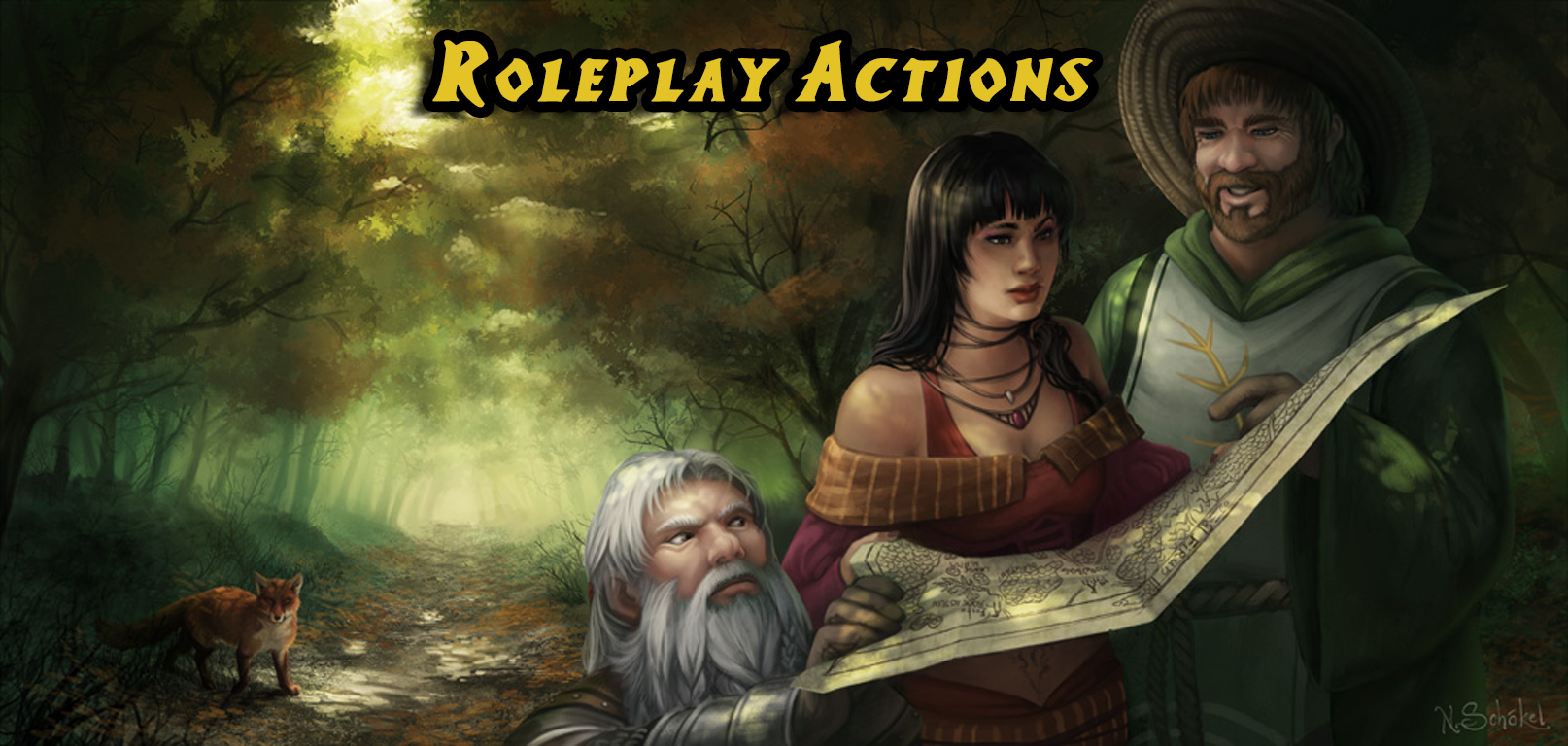
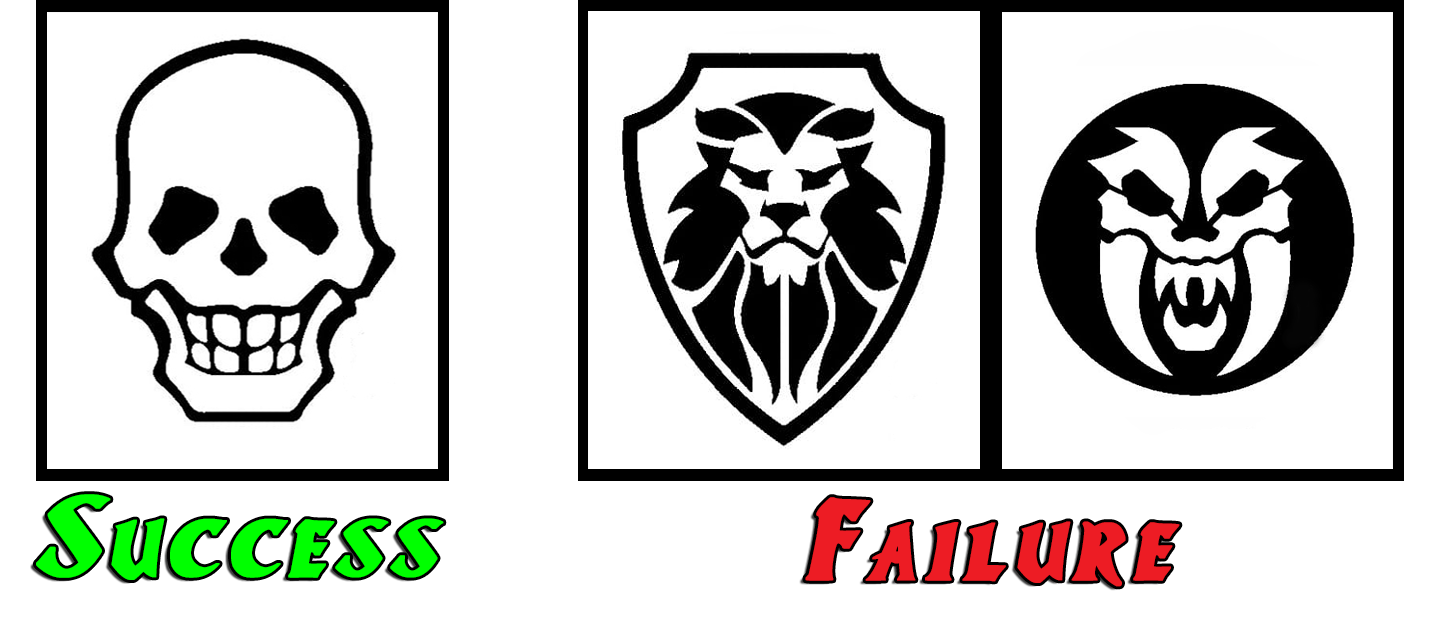
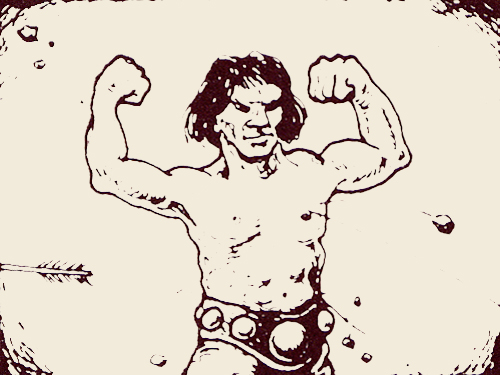
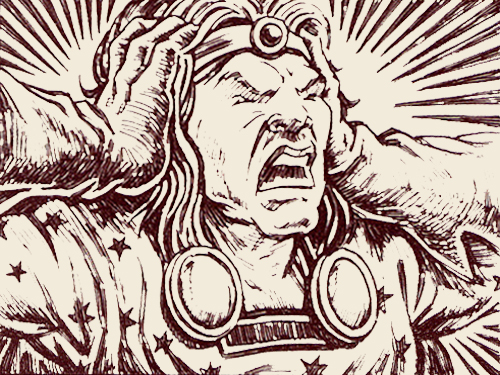
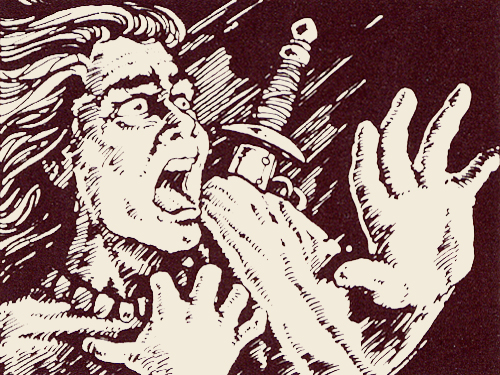
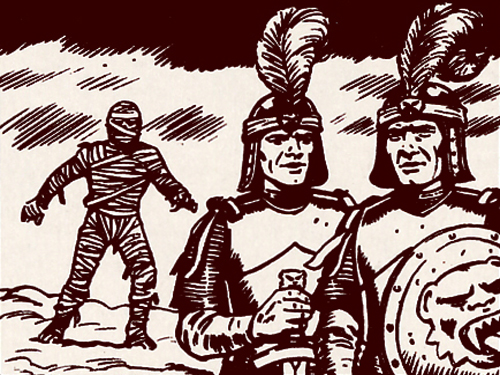
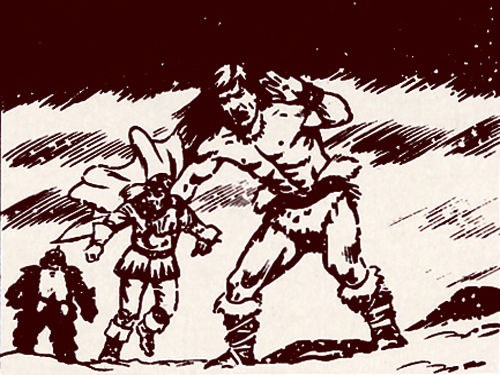

Comments